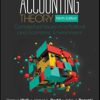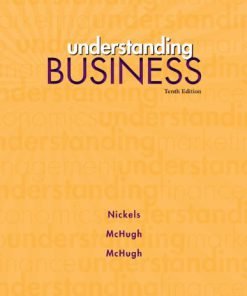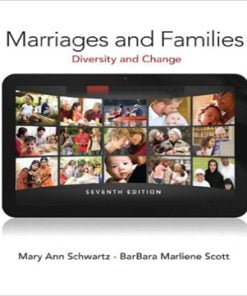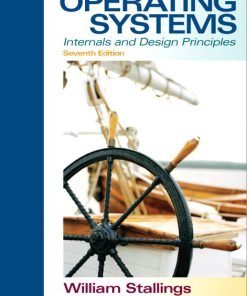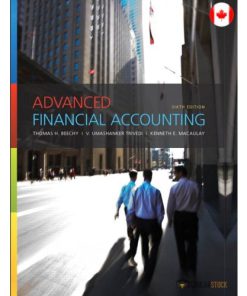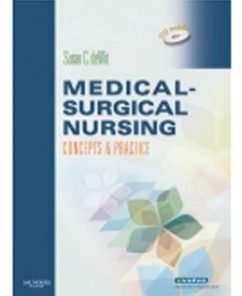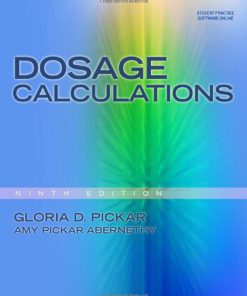Test Bank for Discovering the Lifespan, 2nd Canadian Edition, Robert S. Feldman Oriane Landry
$55.00 Original price was: $55.00.$29.99Current price is: $29.99.
Test Bank for Discovering the Lifespan, 2nd Canadian Edition, Robert S. Feldman, Oriane Landry,
Test Bank for Discovering the Lifespan Canadian 2nd Canadian Edition Feldman
Test Bank for Discovering the Lifespan, 2nd Canadian Edition, Robert S. Feldman, Oriane Landry
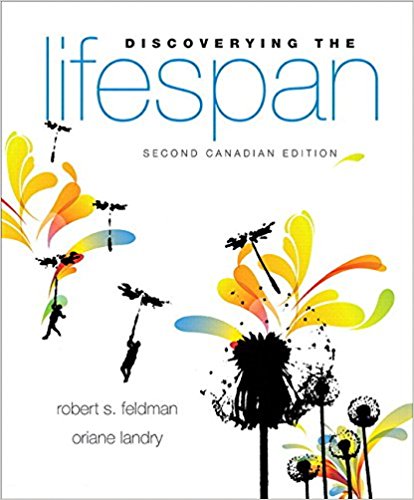
Product details:
- ISBN-10 : 0133902706
- ISBN-13 : 978-0133902709
- Author: Robert S. Feldman
Discovering the Life Span, 2ce helps students truly connect to the material. Written in an engaging and accessible style and organized in a modular format, this title allows instructors to cover the entire lifespan without having to sacrifice content throughout their course. Students will get a better sense of the entire process of development and understand how the domains of development work together. Discovering the Life Span is a meaningful learning experience that prepares readers to apply content to their personal and future professional lives.
Table contents:
Chapter 1 Introduction
An Orientation to Lifespan Development
Characterizing Lifespan Development: The Scope of the Field
Topical Areas in Lifespan Development
Age Ranges and Individual Differences
The Links Between Topics and Ages
Cohort and Other Influences on Development: Developing with Others in a Social World
Key Issues and Questions: Determining the Nature—and Nurture—of Lifespan Development
Continuous Change Versus Discontinuous Change
Critical and Sensitive Periods: Gauging the Impact of Environmental Events
Lifespan Approaches Versus a Focus on Particular Periods
The Relative Influence of Nature and Nurture on Development
Review, Check, and Apply
Review
LO 1.1 Describe the scope of the field of lifespan development.
LO 1.2 Describe cohorts, and explain how they influence development.
LO 1.3 Explain the differences between continuous change and discontinuous change.
LO 1.4 Distinguish between critical periods and sensitive periods.
LO 1.5 Describe how the study of lifespan development expanded.
LO 1.6 Summarize the influence of nature and nurture on development.
Check Yourself
Applying Lifespan Development
The Psychodynamic, Behavioral, and Cognitive Perspectives
The Psychodynamic Perspective: Focusing on the Inner Person
Freud’s Psychoanalytic Theory
Erikson’s Psychosocial Theory
Assessing the Psychodynamic Perspective
The Behavioral Perspective: Focusing on Observable Behavior
Classical Conditioning: Stimulus Substitution
Operant Conditioning
Social-Cognitive Learning Theory: Learning Through Imitation
Assessing the Behavioral Perspective
The Cognitive Perspective: Examining the Roots of Understanding
Piaget’s Theory of Cognitive Development
Assessing Piaget’s Theory
Information Processing Approaches
Assessing Information Processing Approaches
Cognitive Neuroscience Approaches
Assessing Cognitive Neuroscience Approaches
The Humanistic, Contextual, and Evolutionary Perspectives
The Humanistic Perspective: Concentrating on Uniquely Human Qualities
Assessing the Humanistic Perspective
The Contextual Perspective: Taking a Broad Approach to Development
The Bioecological Approach to Development
Assessing the Bioecological Approach
Vygotsky’s Sociocultural Theory
Assessing Vygotsky’s Theory
Evolutionary Perspectives: Our Ancestors’ Contributions to Behavior
Assessing the Evolutionary Perspective
Why “Which Approach Is Right?” Is the Wrong Question
Review, Check, and Apply
Review
People also search:
discovering the lifespan 4th edition pdf
discovering the lifespan 4th edition
discovering the lifespan 5th edition
Related products
Test Bank
Test Bank for Operating Systems: Internals and Design Principles, 7th Edition: William Stallings



